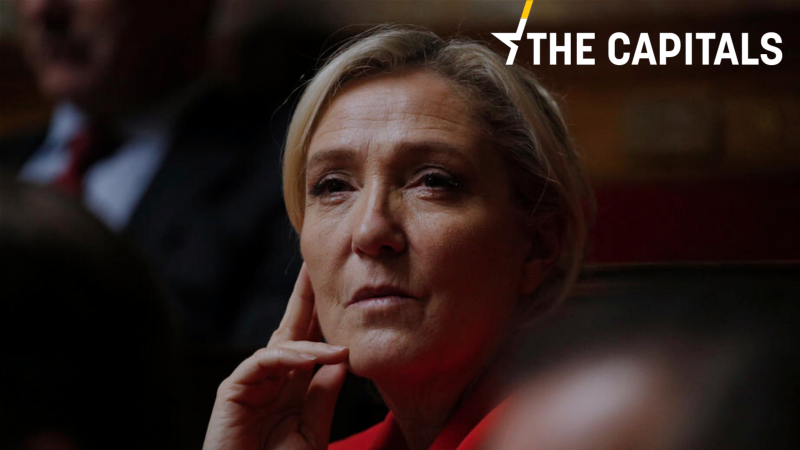
Before you start reading today’s edition of the Capitals, we invite you to read the story “LEAK: Digital services face EU competition crackdown” written by Samuel Stolton.
***Photo by Shutterstock
///
VILNIUS. Lithuania’s intelligence agencies have published their annual National Threat Assessment report, reviewing national security challenges from 2019. The report says that Lithuanian professionals are targeted by Chinese agents posing as employers on LinkedIn, and warns Lithuanian tourists travelling to Russia’s Kaliningrad and Saint Petersburg on recently introduced free visas to beware of attempts to recruit them, the Lithuanian public broadcaster LRT reports.
According to the report, Belarus’ new nuclear power plant, to be launched this year some 50 kilometres from the Lithuanian capital, presents a serious security threat. The report details tensions between the plant’s constructor, Russia’s Rosatom, and Belarusian public safety authorities, which have been sidelined in a rush to meet construction deadlines. Read more.
///
BERLIN
Liberal FDP leader calls for vote of confidence. Amidst the uproar over the Minister-President elections in Thuringia, federal leader of the liberal FDP party, Christian Lindner, asked the party’s executive board to hold a vote of confidence on Friday (7 February) during its special session in Berlin.
After convincing Thomas Kemmerich, who had been Thuringia’s Minister-President for just 25 hours, to resign, Lindner announced his intention to hold a confidence vote, saying he “would not be able to continue as party chairman if even a regional party affiliation of the FDP were to seek cooperation with the AfD or accept dependence”. EURACTIV Germany’s Sarah Lawton looks at how the events unfolded.
Read also how liberal MEPs of the Renew group reacted in Brussels: here.
///
VIENNA
Austria’s major fossil fuel company pushes ‘green image’. After OMV, Austria’s biggest oil and gas company (31.5% state-owned), published its business results for 2019, its CEO Rainer Steele used the opportunity to focus a company presentation on climate change. Although this kind of event was earlier usually used to paint lofty images about the future of gas and oil, the company’s CEO said that OMV “has long been asking itself how we can contribute to a future with less carbon.”
Seele announced a new unit within OMV called “New Energy Solutions”, which will experiment with solar parks, hydrogen and the recycling of plastic to raw oil. OMV increased its net profits by 8% in 2019 compared to 2018. (Philipp Grüll | EURACTIV.de)
///
BRUSSELS
Controversial visit. Although the main goal is meant to be the festive closing of an expo with the Flemish masters in Budapest, Flemish PM Jan Jambon’s planned side-meeting with Hungarian Prime Minister Viktor Orban next week has drawn criticism from the Belgian opposition, who fear it might send the wrong signal. “The prime minister’s objective is to develop contacts that can be useful to Flanders,” Jambon’s office said. And although Budapest is under pressure in Europe for eroding rule of law, “there is no partisan or ideological interest in this contact,” it added in the statement. (Alexandra Brzozowski | EURACTIV.com)
Also, read the interview with the Belgian health minister “This time Belgium could mine healthcare data instead of coal” conducted by Sarantis Michalopoulos.
///
DUBLIN
Fine Gael’s Leo Varadkar has hit out at Sinn Féin’s stance on taxation and climate change, following an Irish Times poll on Monday (3 February) that had the Republican party in first place. “It is strange to meet people who are going to vote for Sinn Fein because they want lower taxes,” Varadkar said yesterday, adding that Sinn Fein is a party “opposed to the carbon tax.” (Samuel Stolton |EURACTIV.com) Read more about Sinn Féin’s dramatic rise in the polls.
![Lithuania's intelligence agencies published their annual National Threat Assessment report. [Shutterstock]](https://media.jutarnji.hr/images/live-multimedia/binary/2020/2/7/9/spy-800x450.png)




Za sudjelovanje u komentarima je potrebna prijava, odnosno registracija ako još nemaš korisnički profil....